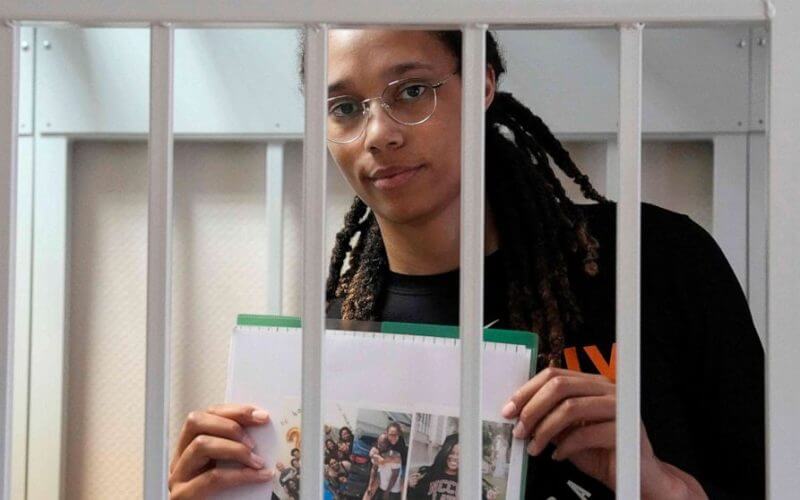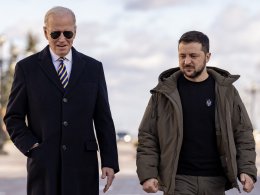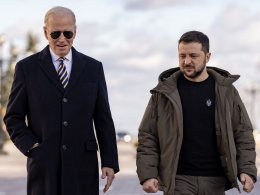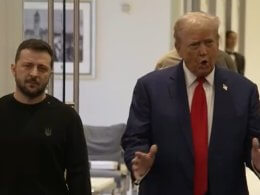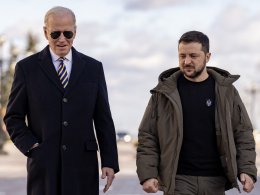In a sharp reversal, Secretary of State Antony Blinken announced Wednesday that he will hold a call with Russia's Foreign Minister Sergey Lavrov "in the coming days," which will mark the first time the two have spoken since the war in Ukraine began and will be a meaningful step toward reopening high-level diplomatic channels between the two countries.
Blinken told reporters during a press briefing that a critical topic of discussion will be securing the freedom of WNBA superstar Brittney Griner and former Marine Paul Whelan, both of whom are held in Russia.
The secretary revealed that the U.S. has already put forward a plan to accomplish that and is hopeful for a breakthrough on their cases.
Three sources familiar with the offer confirmed to ABC News that the U.S. had proposed exchanging convicted arms dealer Viktor Bout in order to secure Griner and Whelan's release from Russia. (CNN was first to report this plan.)
Russia has not yet responded to the offer.
Neither Blinken nor White House spokesman John Kirby would confirm details -- only reiterating that such cases were delicate, requiring the balance of national security interests with the importance of protecting Americans abroad.
"[They] have been wrongly detained and must be allowed to come home," Blinken said. "We put a substantial proposal on the table weeks ago to facilitate their release. Our governments have communicated repeatedly and directly on that proposal, and I'll use the conversation to follow up personally and I hope move us toward a resolution."
Asked repeatedly about the specifics of the proposal, Blinken declined to shed much more light.
"You'll understand that I can't and won't get into any of the details of what we've proposed to the Russians over the course of some many weeks now," Blinken said. "Here's what I can say: First, as I mentioned, we've conveyed this on a number of occasions and directly to Russian officials. And my hope would be that in speaking to Foreign Minister Lavrov, I can advance the efforts to bring them home."
"My interest and my focus is making sure that, to the best of our ability, we get to yes," he said.
A potentially key figure in this is Bout -- the former Russian arms dealer serving a 25-year prison sentence, dubbed the "Merchant of Death" by the media, whom the U.S. offered to swap for both Griner and Whelan. Before Wednesday's proposal was announced, officials had indicated to ABC News that a Bout trade was one potential option.
Bout's attorney Albert Dayan told ABC News that he welcomed a deal: "I encourage both of the governments, United Sates and Russia, in these particular cases to agree to the exchange. Especially since Mr. Bout has already served more than the majority of his sentence." Dayan said his client had spend "much time in solitary confinement."
Blinken on Wednesday acknowledged there was precedent for prisoner trades.
"We demonstrated with Trevor Reed, who came home some months ago, that the president is prepared to make tough decisions if it means the safe return of Americans," Blinken told reporters, referring to the former Marine jailed in Russia before he was exchanged for Konstantin Yaroshenko, who was serving a 20-year sentence in the U.S. for drug smuggling.
Blinken said that President Joe Biden played an active role in crafting the proposal for Griner and Whelan.
"He was not only directly involved -- he signs off on any proposal that we make," Blinken said. "Certainly when it comes to Americans who are detained abroad, including in this case."
There were no immediate indications that Russia was ready to agree to a proposal over its detainees and the Kremlin continues to suggest it first wants to see Griner's trial play out in full. Many experts estimate there is at least a month to go. While Griner pleaded guilty earlier this month, the case against her proceeds.
In separate statements on Wednesday afternoon, both Griner's lawyers and Whelan's family said they were somewhat surprised to learn of the U.S. plan.
"Like you, we are learning more today about the U.S. government's attempts to secure Paul, and Brittney Griner's, release from wrongful detention by the Russian government. Our family appreciates the Biden administration seeking Paul's release using the resources it has available. We hope the Russian government responds to the U.S. government and accepts this or some other concession that enables Paul to come home to his family," Whelan's twin brother, David Whelan, said in a statement.
"Hopefully no other American will be wrongfully held by the Russian government in the future. The sooner the better," David Whelan said.
An attorney for Griner, Maria Blagovolina, said the "defense team learned about [the] U.S. offer from the news" and "is not participating in the swap discussions. From the legal perspective, the swap is possible only after the court reaches a verdict. In any case, we would be really happy if Brittney will be able to come home and hope it will be soon."
Whelan, who worked in corporate security after being discharged from the Marines, was convicted in Russia of espionage -- which he and the U.S. deny. Griner was arrested and later pleaded to illegally bringing hashish oil into the country, though she said it was "inadvertent" and was part of her vape cartridge.
White House spokesman Kirby, like Blinken, was tight-lipped about Griner and Whelan during a separate press briefing Wednesday.
"In order to decrease the chances for success here, we're obviously not going to be able to share more publicly about the deal. I'm sure you all have questions about what this looks like. And I'm sure you can all understand that it's not going to help us get them home if we're negotiating in public," he said.
Kirby took great pains to distance himself from any specifics -- pushing back on the characterization of a "swap" when one reporter raised it -- and wouldn't engage when asked specifically if it would be "smart" to include Bout in such a deal.
While the focus is to get those detained freed, Kirby underscored that the balance has to include a consideration that "our own national security is preserved and that we're not encouraging hostage taking in the future."
Kirby was also pressed on why the U.S. was making this offer public now, and if it was in part to up the pressure on Russia.
"No decision to talk about these issues [is] made lightly, given how sensitive they can be, given the ultimate outcome that you want to achieve. We think through every step so carefully," he said.
Blinken, for his part, has not spoken to Lavrov -- or indeed, any top Russia officials -- since January, when they were locked in a flurry of talks as the U.S. tried to prevent a Russian invasion of Ukraine.
The men were in the same room during the Group of 20 summit in Indonesia earlier this month but had no direct contact.
Blinken was asked at the time if there was a cost to pay for the Americans wrongfully detained in Russia by freezing out Lavrov.
"The problem is this: We see no signs whatsoever that Russia is prepared to engage in meaningful diplomacy," he responded, adding that the U.S. would seize the opportunity should it detect a shift from the Kremlin.
On Wednesday, however, he expressed some optimism that his forthcoming call with Lavrov would be productive.
"There is in my mind, utility in conveying clear, direct messages to the Russians on key priorities for us," he said.
"We make a judgment in every instance," he said. "I thought it was important to make clear that on these issues -- the detention of our American citizens, the food crisis the world is facing because of Russia's aggression against Ukraine and the plans that Russia now has to pursue the annexation of Ukrainian territory -- that our Russian counterparts hear directly from me."
Still, he said, "My call with Foreign Minister Lavrov will not be a negotiation about Ukraine. Any negotiation regarding Ukraine is for its government and people to determine. As we've said from the beginning, nothing about Ukraine without Ukraine."





